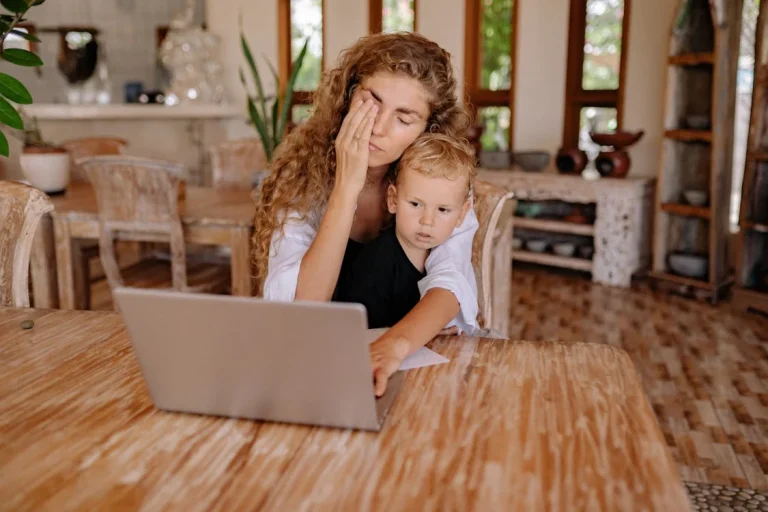
In the journey of raising our children, few partnerships are as crucial as the one between parents and teachers. As Christian parents, we understand that education is not just about academic achievement but about nurturing our children’s hearts, minds, and spirits. Effective parent-teacher communication serves as a vital bridge between home and school, ensuring that our children receive consistent support and guidance in all areas of their growth.
Proverbs 22:6 reminds us to “Start children off on the way they should go, and even when they are old they will not turn from it.” This biblical wisdom underscores the importance of a unified approach to a child’s education and character development. But how can we, as parents, foster a strong, positive relationship with our children’s teachers? How can we ensure that our communication is effective, respectful, and centered on our child’s best interests?
In this article, we’ll explore practical strategies for building strong parent-teacher relationships, preparing for productive parent-teacher conferences, and creating a collaborative environment that supports our children’s academic and spiritual growth. Let’s embark on this journey together, discovering how we can partner with teachers to create a nurturing educational experience that aligns with our faith values.
Building Trust with Teachers

Just as trust is the cornerstone of our relationship with God, it’s also the foundation of effective parent-teacher communication. Building this trust begins with recognizing that both parents and teachers share a common goal: the well-being and success of the child.
Start by reaching out to your child’s teacher early in the school year. Introduce yourself and express your enthusiasm for working together. Share a bit about your child—their interests, strengths, and any challenges they may face. This initial contact sets a positive tone for future interactions.
Remember that teachers are dedicated professionals who have chosen a career of service. Approach them with respect and appreciation for their expertise and commitment. At the same time, recognize that you are the expert on your child. Effective communication involves a mutual exchange of insights and observations.
Be open and honest in your communication. If there are family circumstances or personal issues that might affect your child’s performance or behavior at school, share this information with the teacher. This transparency allows the teacher to better understand and support your child.
Pray for your child’s teacher regularly. This not only invites God’s blessing on their work but also helps cultivate a spirit of empathy and partnership in your heart.
Effective Parent-Teacher Relationships

Building on the foundation of trust, effective parent-teacher relationships thrive on ongoing, two-way communication. This collaborative approach ensures that both home and school environments are working in harmony to support the child’s growth.
Establish a regular communication routine with your child’s teacher. This might involve checking a school communication app daily, reading newsletters, or scheduling brief check-ins at set intervals. Consistent communication helps prevent small issues from escalating and allows for timely celebrations of successes.
When communicating with teachers, strive to maintain a positive, solution-oriented approach. If concerns arise, express them respectfully and be open to the teacher’s perspective. Remember the wisdom of Proverbs 15:1, “A gentle answer turns away wrath, but a harsh word stirs up anger.”
Be responsive to the teacher’s communications. If they reach out with a concern or a request, respond promptly and thoughtfully. This demonstrates your commitment to the partnership and your child’s education.
Volunteer in the classroom or for school events when possible. This not only supports the teacher and the school community but also gives you valuable insights into your child’s educational environment.
Parent-Teacher Conferences

Parent-teacher conferences provide a focused opportunity to discuss your child’s progress and set goals for their continued growth. Approaching these meetings with preparation and a collaborative spirit can greatly enhance their effectiveness.
Before the conference, take time to reflect on your child’s strengths, challenges, and any specific concerns you may have. Write down your questions to ensure you don’t forget important points during the meeting. Consider discussing these points with your child beforehand; their perspective can be invaluable.
During the conference, listen actively to the teacher’s observations and insights. Remember that they see your child in a different context than you do, and their perspective can provide valuable information about your child’s behavior and learning style.
Be open to hearing both positive feedback and areas for improvement. If the teacher brings up concerns, try to approach them as opportunities for growth rather than criticisms. Work together to develop strategies to address any challenges.
Share your own observations about your child’s learning at home. This might include homework habits, attitudes towards school, or any changes you’ve noticed in their behavior or interests.
Don’t hesitate to ask for clarification if anything is unclear. Understanding the teacher’s expectations and the school’s policies is crucial for supporting your child effectively at home.
School Communication: Staying Informed and Engaged

In today’s digital age, schools often use various platforms to communicate with parents. Engaging actively with these communication channels is key to staying informed and involved in your child’s education.
Familiarize yourself with the school’s preferred communication methods, whether it’s email, a dedicated app, or a web portal. Check these platforms regularly and ensure that your contact information is up-to-date.
Read school newsletters and announcements carefully. These often contain important information about upcoming events, policy changes, or opportunities for parent involvement.
If your child’s school offers a parent portal where you can view grades, assignments, and attendance, check it regularly. This allows you to stay on top of your child’s progress and address any issues promptly.
Remember that effective communication is a two-way street. If you have questions or need clarification about something you’ve read, don’t hesitate to reach out to the appropriate school staff.
Parent Involvement in Education: Being an Active Partner

Active parent involvement in education goes beyond just communicating with teachers. It involves creating a home environment that supports learning and reinforces the values taught at school.
Create a designated study area at home and establish a consistent homework routine. This shows your child that you value their education and helps reinforce good study habits.
Show interest in what your child is learning. Ask them about their day, what they enjoyed most, and what they found challenging. This not only helps you stay informed but also encourages your child to reflect on their learning.
Attend school events when possible. This might include open houses, science fairs, or performances. Your presence demonstrates your commitment to your child’s education and helps you feel more connected to the school community.
Consider joining the Parent-Teacher Association (PTA) or other parent groups at your child’s school. This can provide valuable opportunities to contribute to the school community and stay informed about important issues affecting your child’s education.
Building Strong Relationships with Your Child’s Teacher

As Christian parents, we have a unique opportunity to approach our relationship with our child’s teacher from a perspective of service and grace. We can model Christ’s love through our interactions and support.
Pray for wisdom in your communications with teachers. Ask God to guide your words and actions so that they may be a reflection of His love and grace. Remember James 1:5, “If any of you lacks wisdom, you should ask God, who gives generously to all without finding fault, and it will be given to you.”
Look for opportunities to encourage and appreciate your child’s teacher. A heartfelt note of thanks, a small gift, or simply expressing gratitude for their efforts can go a long way in building a positive relationship.
If conflicts or misunderstandings arise, approach them with a spirit of humility and reconciliation. Be willing to listen, to acknowledge your own mistakes, and to work towards solutions that benefit your child.
Share your faith values with the teacher in a respectful way. While being mindful of the boundaries between church and state in public schools, it can be helpful for the teacher to understand the principles that guide your family’s decisions and behavior.
Effective Communication Strategies for Parents and Teachers

Clear, respectful, and consistent communication is the key to a strong parent-teacher partnership. Here are some practical strategies to enhance your communication:
Be proactive in your communication. Don’t wait for problems to arise before reaching out to the teacher. Regular check-ins can help prevent issues and build a positive relationship.
Use “I” statements when expressing concerns. For example, “I’m worried about…” rather than “You’re not…”. This approach is less likely to put the teacher on the defensive and more likely to lead to productive problem-solving.
Practice active listening. Give the teacher your full attention, ask clarifying questions, and summarize what you’ve heard to ensure understanding.
Be solution-oriented. If you bring up a concern, come prepared with ideas for how to address it. Be open to the teacher’s suggestions as well.
Follow up after meetings or significant communications. Send a brief email thanking the teacher for their time and summarizing any action points discussed.
Conclusion
As we conclude our exploration of effective parent-teacher communication, let’s remember that this partnership is about more than just academic success. It’s about creating a nurturing environment where our children can grow in wisdom, character, and faith.
By fostering strong, positive relationships with our children’s teachers, we’re not only supporting their educational journey but also modeling important life skills. We’re showing them how to communicate effectively, resolve conflicts, and work collaboratively towards shared goals.
Remember, just as we are co-laborers with God in raising our children, we are also co-laborers with their teachers in educating them. Let’s approach this partnership with grace, respect, and a commitment to our children’s holistic development.
May our efforts to build bridges between home and school be blessed. May they create an environment where our children can thrive academically, socially, and spiritually. And may our communication always be seasoned with the love and wisdom that comes from above, reflecting the heart of our Heavenly Father in all our interactions.






